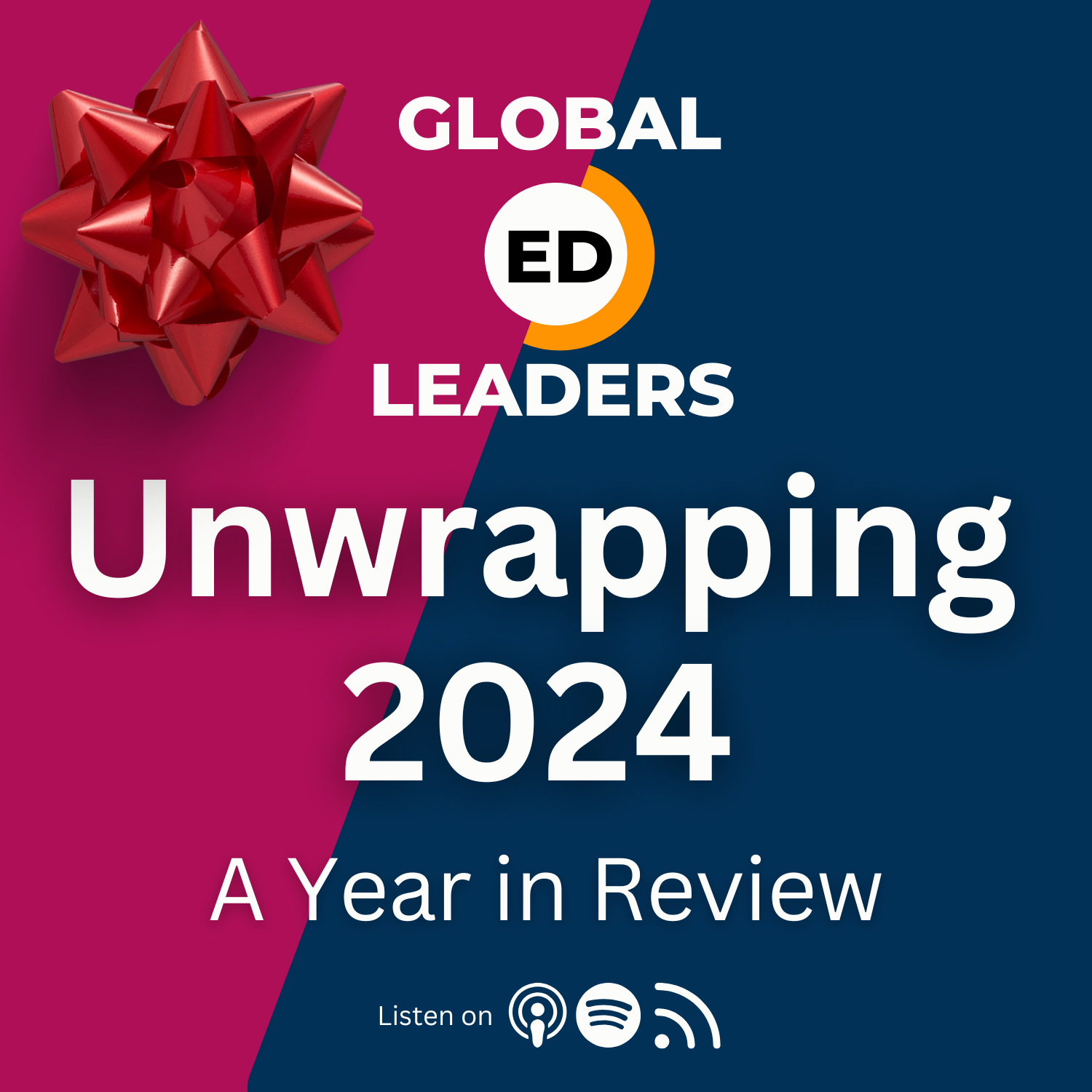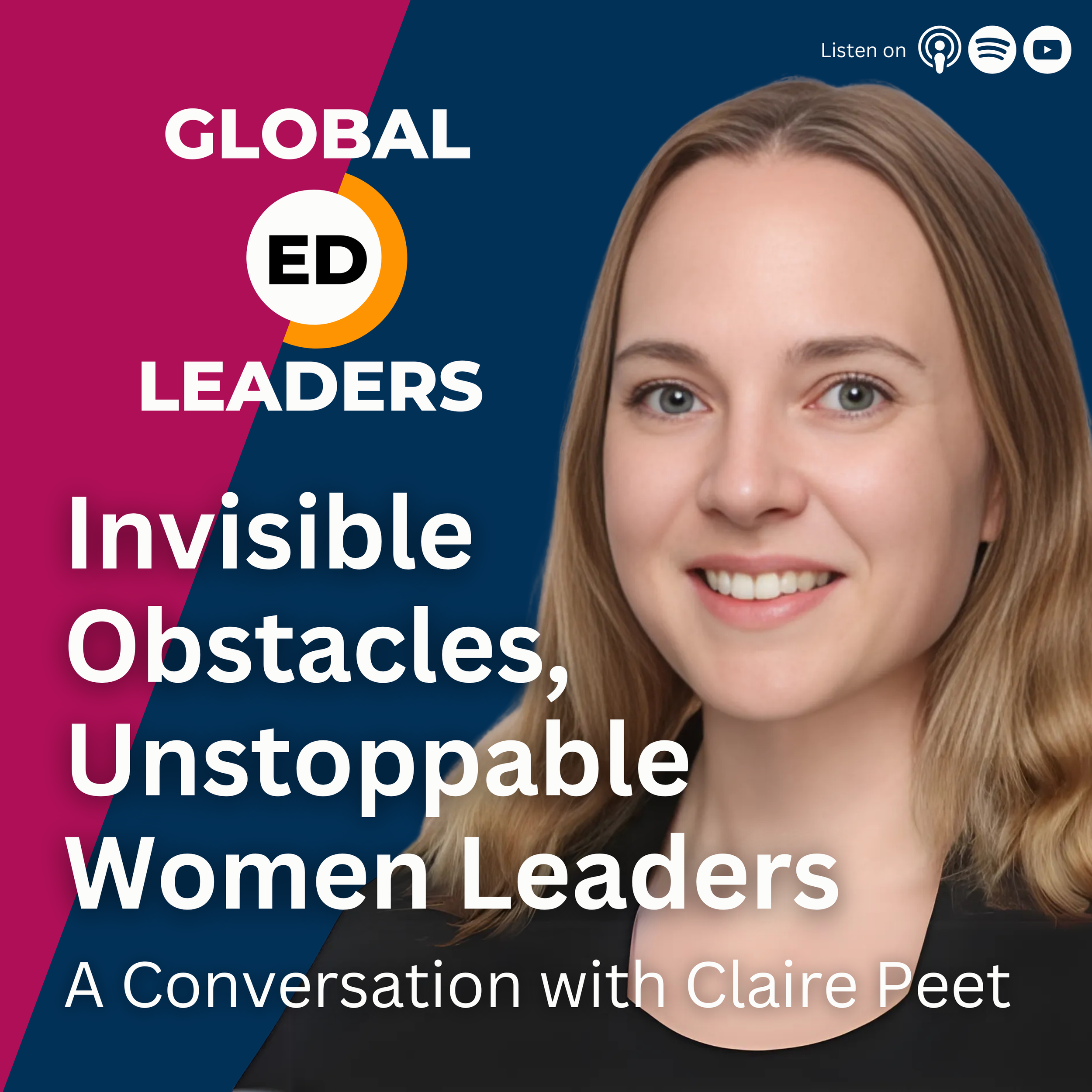Impactful interviews with renowned thought leaders and deep-dives in to international school trends and strategies, to support you in your international school leadership journey.
EDUCATION LEADERS has topped the School Podcast charts in countries across the world* and is in the top 10% of all podcasts globally*.
*#1 podcast in Apple Podcast Charts in Hong Kong, Ireland, April 2024, Top 10% data from ListenNotes
Tune in every week:
How to partner with parents
In this episode, I speak with Christina Hidek, an expert in parent engagement, about the vital role of parent communities in schools. We explore the numerous benefits of empowered parent groups and how schools can build strong, collaborative relationships with parents.
Why your teachers have seen it all before
In this bite-sized leadership episode, Shane explores why education seems to move in cycles, with approaches and methodologies appearing to come back around under new names:
Can schools do flexible work?
Shane speaks with Neil Renton, headteacher, and Julie Wellacott, HR professional, who are pioneering flexible working approaches in UK schools through their work as Flexible Working Ambassadors.
How to delegate
Shane explores the nine levels of delegation developed by the late Tim Brighouse, a renowned British educationalist. This framework provides a clear spectrum from essentially no delegation to complete handover of responsibility.
Rethinking feedback
Shane welcomes globally renowned educator Ross McGill, known worldwide as Teacher Toolkit. Ross shares his groundbreaking approach to feedback and assessment, challenging traditional marking practices and offering practical alternatives that can transform how schools approach feedback while reducing teacher workload.
The problem with grades
Shane Leaning speaks with Amarbeer Singh Gill and Jennifer Curran from Ambition Institute about assessment in education. The conversation challenges our reliance on grades and numbers, exploring the limitations of traditional assessment methods and offering insights into more meaningful approaches to understanding student learning.
Build change that outlives you
In this final episode of our organisational change series, Shane explores the often overlooked aspect of change management - sustainability. Drawing from the Work Collaborative model for organisational change and his upcoming book "Change Starts Here," he explains why creating sustainable change is about more than just maintaining a specific initiative - it's about building a culture where change becomes part of your school's DNA.
Supporting Men in Schools
Ryan Parke (The Men's Coach) shares his personal experience with the suicide of a friend and explores the complexities of male mental health. He discusses the common belief that men don't talk about their feelings, which he challenges. Ryan and I particularly delve into the role of testosterone in men's health, debunking myths about its effects and emphasising the importance of lifestyle factors such as sleep, diet, exercise, and sobriety in maintaining healthy testosterone levels. He provides practical advice for improving men's health and wellbeing, ultimately advocating for a more nuanced understanding of male mental health issues.
Why Good Plans Fall Apart (And How to Prevent It)
"Plans are worthless, but planning is everything" - Eisenhower's wisdom applies perfectly to school change. In this episode of the organisational change series, Shane explores the crucial delivery phase where planning meets reality.
When Teachers Teach Teachers
This conversation explores the role of teacher educators, their unique challenges, and the dynamics of career transitions within the education sector. Dr. Ciara O' Donnell discusses the identity transformation that occurs during secondment, the impact of educational policies on teacher retention, and the skills required to effectively educate teachers. Our discussion highlights the importance of professional learning and the privilege of working with fellow educators to drive meaningful change in the education system.
When Do You Know Enough?
Shane Leaning explores the delicate balance of learning enough to implement change without falling into analysis paralysis. He emphasises the importance of identifying knowledge gaps, questioning assumptions, and leveraging both internal and external expertise.
How to Build an Intentional School Culture
Joel Abel, author of Teacher First Management. Joel shares practical insights on how to build and maintain intentional school culture, introducing his culture feedback loop model that connects results, actions, and beliefs. We explore why simply mandating actions isn't enough and how to create experiences that genuinely shift teacher beliefs and behaviors.
5 Ways to Break Out of Your School Bubble
In this episode, Shane Leaning explores five powerful strategies for educational leaders to break out of their professional bubbles and gain fresh perspectives. Recording from London during a week of professional connections, Shane shares insights on how to enrich your practice by looking beyond school walls.
School Vs. Tutor
When some families see tutoring as non-negotiable and others as a last resort, how should international schools approach this complex topic? Sarah Capewell (founder of Aster Academy) and Arthur Moore (Professional Tutor of the Year 2024) unpack the challenges and opportunities around tutoring in international education.
Want Better Solutions? Start with Bigger Dreams
Shane explores the 'develop' stage of the change process, where schools need to think big before narrowing down solutions. Through real examples and practical frameworks, learn why temporarily suspending practical constraints might lead to better solutions for your school.
Practical AI Tools for School Leaders
In this episode, organisational coach Shane Leaning sits down with AI in education expert Dan Fitzpatrick to explore practical ways school leaders can leverage AI tools to enhance their productivity and effectiveness. As we start the new year, this discussion offers timely insights for leaders looking to streamline their workload.
Unwrapping 2024: A Year in Review
In this special Christmas Eve episode, host Shane Leaning reflects on a remarkable year of Global Ed Leaders, highlighting some of the most impactful conversations and milestones from 2024.
Stop Getting Buy-in, Start Getting Alignment
In this episode of the organisational change series, Shane Leaning explores why alignment is crucial for successful change implementation in schools. Through practical examples and actionable strategies, he demonstrates how misalignment can derail even the most well-researched initiatives.
Invisible Obstacles, Unstoppable Women Leaders
In this conversation, Claire Peet discusses the challenges women leaders face in international education. We explore how common leadership terms like 'imposter syndrome' and 'perfectionism' have become problematic labels that can be used against women leaders. Claire shares powerful insights about the double bind women face - being criticised both for adopting and rejecting traditional leadership traits.
Inside China's Newest School Network
At NESSIC's inaugural leadership conference, I captured something special - the birth of China's newest school network.





















